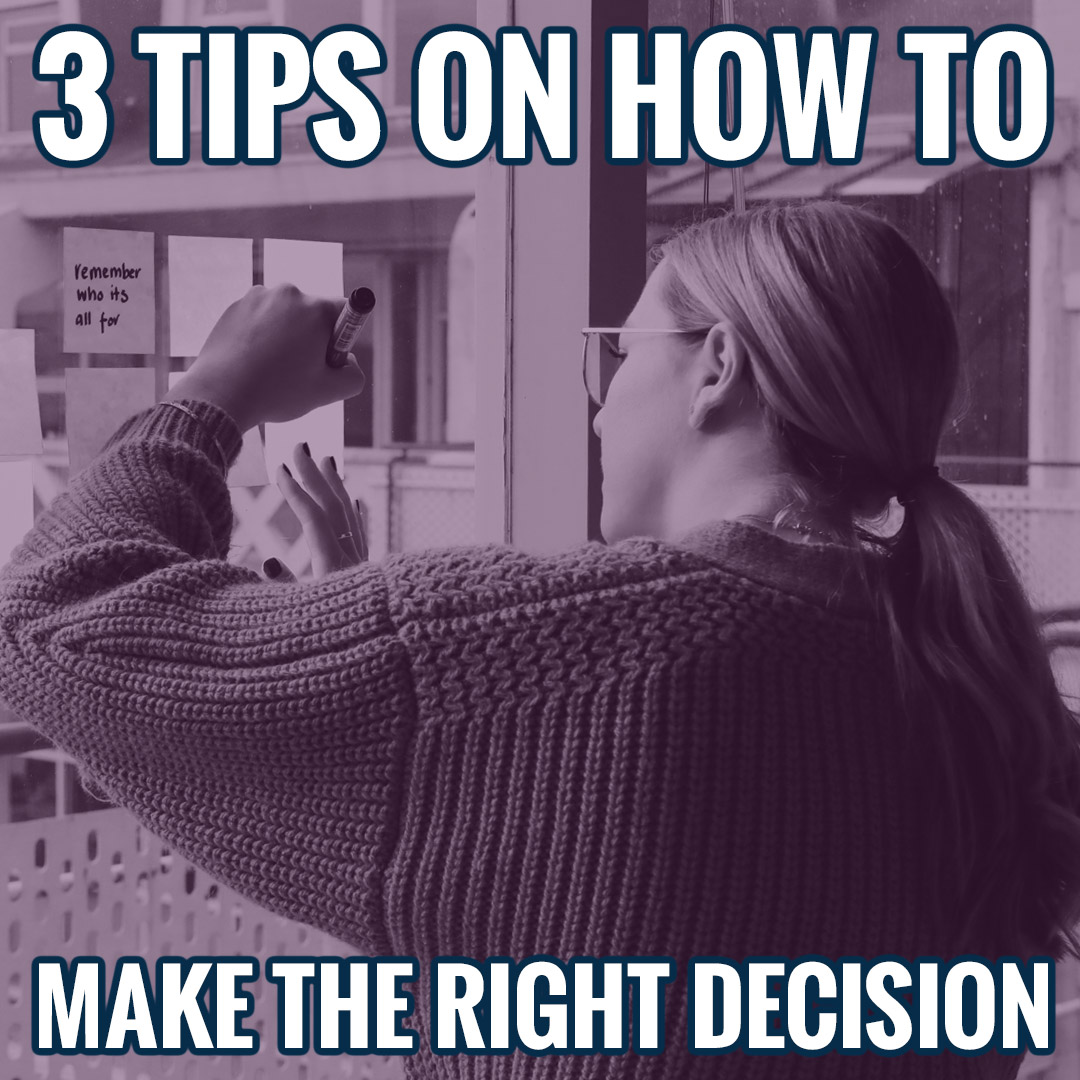Struggling to make decisions?
Here’s the bottom line: when you’re in pursuit of greatness in any aspect of your life, you’ll be faced with thousands of decisions along the way. You may think that making the RIGHT call will make you successful but here’s the problem: most people spend so much time making the RIGHT decision that for days, weeks, or months, they make no decision at all. By this time, that spark that you initially had starts to dwindle and you’ve lost that initial momentum, landing yourself squarely in analysis paralysis. So how do you avoid analysis paralysis?
- Do your homework. In any decision, you’re either going to win or you’re going to learn. If you look at decisions as instances to win or lose, you’re framing every decision so that you only get value out of it if you win. Sure, “winning” will give you that feeling of instant gratification but we all know that NO ONE always gets it right. If you shift away from win/ lose into win/ learn, you’ll find you get as much value from making a decision that does not provide the result you want as you did from making the “right” decision.
- Ask the right questions. In learning from the situations that don’t provide the instant outcome you want, you gain information you need to make a better decision in the future. In most instances, there is no clear right or wrong answer. I’m not talking about moral or ethical things, but general business and life decisions. Instead of asking which one is “RIGHT” ask what you most want out of the situation. As you are researching options, keep in mind the outcome you are looking for.
- Play it forward. If you take the time to actually play your decision forward, ask yourself what the outcome will be in three months, 6 months, and a year. If you don’t know and you don’t have enough information to play out both decisions, just pick one! Don’t put yourself in a situation where everything is riding on the outcome but instead give yourself the space to learn through the maze of success.
If you look at the most successful people in the world, they all took massive amounts of imperfect action. Because they were willing to move forward and move forward imperfectly they got the ultimate prize: they were able to not only win but to learn, helping them to become the best in the world at what they do.
You can’t win the game if you are standing on the sidelines thinking about which play would be best. At some point, you have to step onto the field, make the call, and see what happens.











